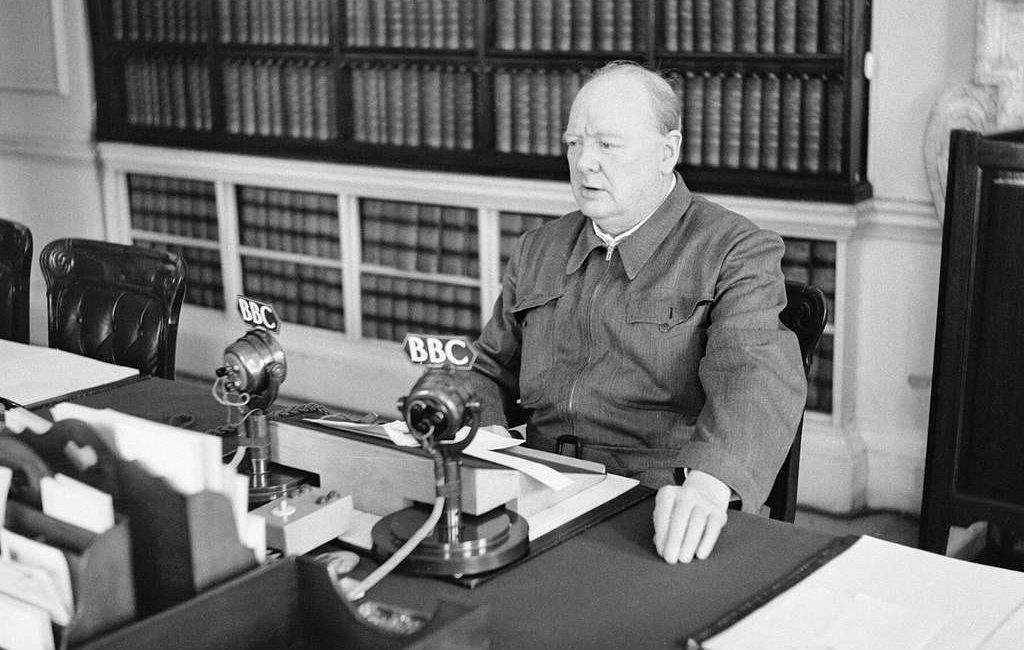Jean Seaton featured in Swedish Radio series on the past and future of public service media

Winston Churchill makes a radio address from his desk at 10 Downing Street, wearing his ‘siren suit’, June 1942. Image Source: Imperial War Museum, Public Domain Media
Is public service a relic from another time – or is it more important than ever? What role does public service play when bombs fall on big cities? Is public service media a dying concept?
These questions are at the heart of Omöjligt uppdrag – Public service i Europa (Mission Impossible: Public Service in Europe), a three-part audio documentary series by Swedish Radio (Sveriges Radio), featuring commentary from Prof. Jean Seaton. The series explores the evolution, challenges, and future of public service broadcasting across Europe, with Prof. Seaton offering insight into the BBC’s role and the broader international need for cooperation in media.
In episode one, “An Idea Takes Shape,” listeners are taken back to the origins of radio and the idealism behind using broadcasting to inform, educate and entertain. Central to this story is John Reith and the foundation of the BBC. Prof. Seaton contributes to the discussion at around 31:35.
Episode two, “War in the Public Service,” focuses on the role of media during World War II, how propaganda and impartiality clashed on the airwaves. The BBC emerged as a major international broadcaster, while questions remain about whether public service media should shape public morale during conflict. Prof. Seaton appears at 15:25, 20:40, and 24:40.
In the final episode, “An Institution Under Threat,” the series examines the fragile state of public service media across Europe today. While Eurovision may present a united media front, the reality is that in many countries, broadcasters serve governments rather than the public. The episode considers both the threats facing public media and the potential for its renewal.
Prof. Jean Seaton’s contributions help frame the importance and complexity of safeguarding public service media in the face of political and technological change.





